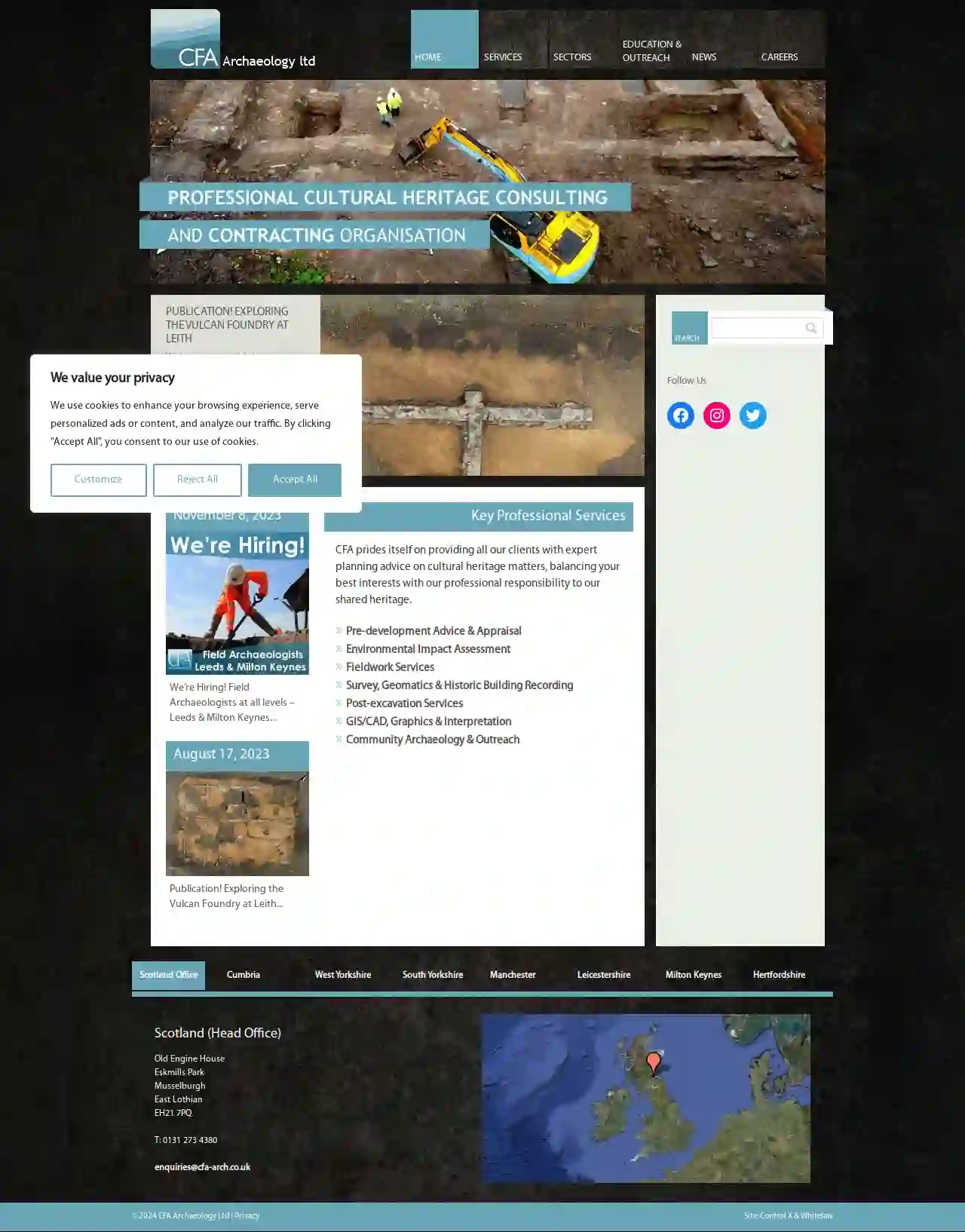Demolition Contractors Walkden
Find top Local Demolition Contractors in Walkden
Get up to 3 Structure Demolition quotes for your project today! Compare profiles, reviews, accreditations, portfolio, etc... and choose the best offer.
- Am
Amey Ecclesfield Depot
1Eccles, GB- Services
- Why Us?
Get Quote 
Centene Construction
115 Memorial Road, Manchester, 15 Memorial Road Manchester, M28 3AQ, GBCentene Construction - You dream it, we build it! At Centene Construction, we are more than just builders; we are creators of spaces and builders of lasting relationships. Established with a commitment to excellence and a steadfast dedication to quality, integrity, and excellent services, Centene Construction is one of the top construction companies in the UK that has marked its name in building firms. Our team of exceptional professionals bring a wealth of experience and expertise to any project we undertake in residential properties in the UK. We understand that construction projects can be daunting, which is why we provide you with a seamless and stress-free experience. All aspects of the project would be taken care of, from the planning paperwork to the final finishing. We work closely with you and ensure that your dream is realized.
- Services
- Why Us?
- Testimonials
- Gallery
Get Quote
CFA Archaeology
51 reviewsEccles, GB- Services
- Why Us?
- Gallery
Get Quote- Le
Leeson W & Son
4.221 reviewsSalford, GB- Services
- Why Us?
Get Quote - F.
F.Parks Construction
1Salford, GB- Services
- Why Us?
Get Quote - Do
Down to Earth Groundworks Ltd
1Salford, GB- Services
- Why Us?
Get Quote - Li
Linbrooke Services Ltd
4.513 reviewsEccles, GB- Services
- Why Us?
Get Quote - On
One Man and His Digger
58 reviewsEccles, GB- Services
- Why Us?
Get Quote - Wo
Worsley Drains
56 reviewsSalford, GB- Services
- Why Us?
Get Quote - Pa
Parr Fold Park
4.636 reviewsSalford, GB- Services
- Why Us?
Get Quote
Over 11,537+ Excavation Companies on our directory
Our excavation contractors operate in Walkden and surroundings!
ExcavationHQ has curated and vetted Top Excavation Contractors in Walkden. Find a top & reliable business today.
Frequently Asked Questions About Demolition Contractors
- Dust Suppression: Use water spraying, misting systems, or other dust suppression techniques to control airborne particles.
- Noise Barriers: Erect temporary noise barriers around the demolition site to reduce noise transmission to nearby properties.
- Work Schedule: Schedule noisy demolition activities during permitted hours to minimize disturbance to neighbors.
- Communication: Keep neighbors informed about the demolition schedule and any potential disruptions.
- Recycling: Concrete, brick, metal, and wood can be recycled and reused in other construction projects, reducing waste sent to landfills.
- Landfill Disposal: Non-recyclable materials are disposed of in designated landfills according to local regulations.
- Donation: Some materials, such as fixtures or appliances, may be suitable for donation to charitable organizations.
- Waste Generation: Demolition generates a large volume of debris, contributing to landfill space and potentially releasing harmful substances into the environment if not disposed of properly.
- Air Pollution: Dust and particulate matter released during demolition can impact air quality, affecting human health and the environment.
- Noise Pollution: Demolition activities can generate significant noise, disturbing nearby residents and wildlife.
- Resource Depletion: Demolition consumes resources that could be salvaged and reused, contributing to resource depletion and environmental degradation.
What is the difference between demolition and deconstruction?
Demolition: Typically involves bringing down a structure quickly and efficiently, often using heavy machinery and potentially explosives. The primary goal is to clear the site.
Deconstruction: Focuses on carefully dismantling a building piece by piece to salvage reusable materials. It prioritizes minimizing waste and environmental impact, often involving manual labor and specialized tools.
The choice between demolition and deconstruction depends on the project's objectives, budget, and environmental considerations.
How can I minimize the dust and noise from demolition?
What happens to the debris after demolition?
What are the environmental impacts of demolition?
What is the difference between demolition and deconstruction?
Demolition: Typically involves bringing down a structure quickly and efficiently, often using heavy machinery and potentially explosives. The primary goal is to clear the site.
Deconstruction: Focuses on carefully dismantling a building piece by piece to salvage reusable materials. It prioritizes minimizing waste and environmental impact, often involving manual labor and specialized tools.
The choice between demolition and deconstruction depends on the project's objectives, budget, and environmental considerations.
How can I minimize the dust and noise from demolition?
- Dust Suppression: Use water spraying, misting systems, or other dust suppression techniques to control airborne particles.
- Noise Barriers: Erect temporary noise barriers around the demolition site to reduce noise transmission to nearby properties.
- Work Schedule: Schedule noisy demolition activities during permitted hours to minimize disturbance to neighbors.
- Communication: Keep neighbors informed about the demolition schedule and any potential disruptions.
What happens to the debris after demolition?
- Recycling: Concrete, brick, metal, and wood can be recycled and reused in other construction projects, reducing waste sent to landfills.
- Landfill Disposal: Non-recyclable materials are disposed of in designated landfills according to local regulations.
- Donation: Some materials, such as fixtures or appliances, may be suitable for donation to charitable organizations.
What are the environmental impacts of demolition?
- Waste Generation: Demolition generates a large volume of debris, contributing to landfill space and potentially releasing harmful substances into the environment if not disposed of properly.
- Air Pollution: Dust and particulate matter released during demolition can impact air quality, affecting human health and the environment.
- Noise Pollution: Demolition activities can generate significant noise, disturbing nearby residents and wildlife.
- Resource Depletion: Demolition consumes resources that could be salvaged and reused, contributing to resource depletion and environmental degradation.